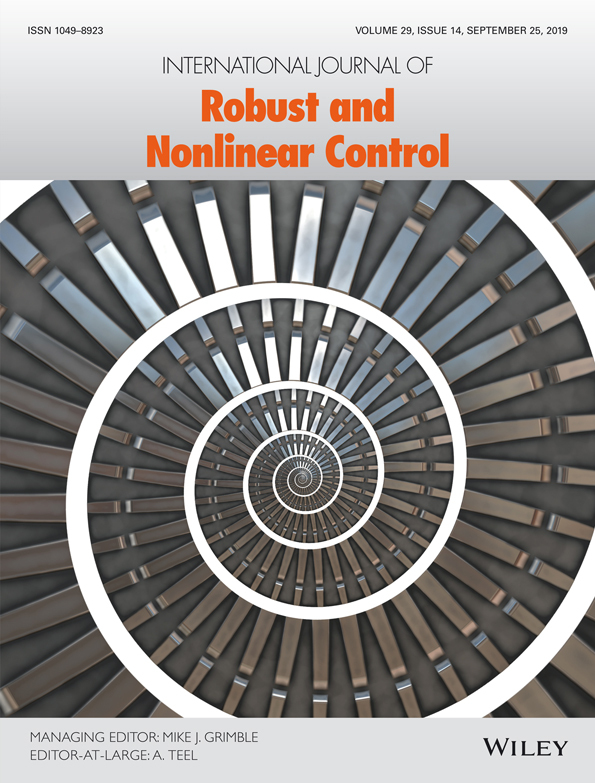A general dissipativity constraint for feedback system design, with emphasis on MPC
Summary
A “general dissipativity constraint” (GDC) is introduced to facilitate the design of stable feedback systems. A primary application is to MPC controllers when it is preferred to avoid the use of “stabilising ingredients” such as terminal constraint sets or long prediction horizons. Some very general convergence results are proved under mild conditions. The use of quadratic functions, replacing GDC by “quadratic dissipativity constraint” (QDC), is introduced to allow implementation using linear matrix inequalities. The use of QDC is illustrated for several scenarios: state feedback for a linear time-invariant system, MPC of a linear system, MPC of an input-affine system, and MPC with persistent disturbances. The stability that is guaranteed by GDC is weaker than Lyapunov stability, being “Lagrange stability plus convergence.” Input-to-state stability is obtained if the control law is continuous in the state. An example involving an open-loop unstable helicopter illustrates the efficacy of the approach in practice.




